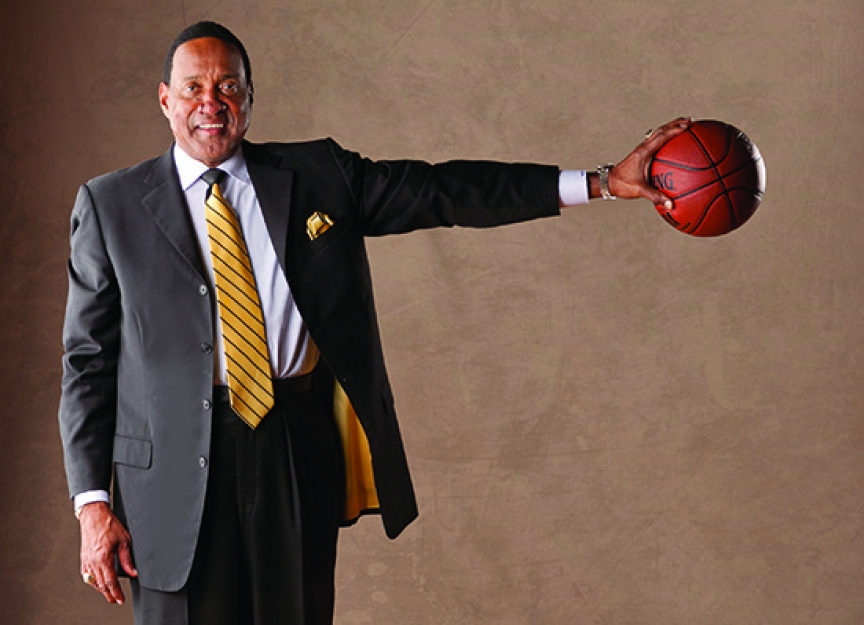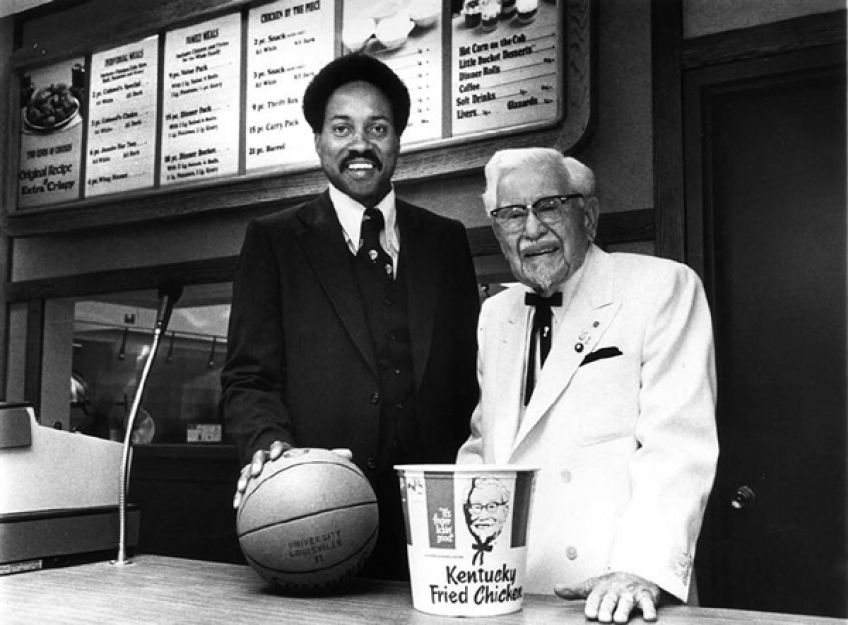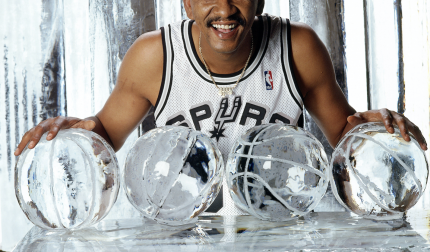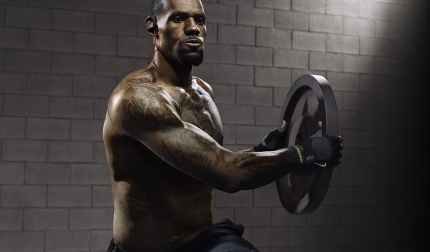In recent years, several athletes have become franchise owners, as they have tried to extend their personal net worth off the field. But not many athletes have been as successful post-career as George Tinsley. After leading Kentucky Wesleyan to three Men’s Division II NCAA Basketball Championships, Tinsley played four seasons in the ABA. Once he left pro basketball, he went to work at Kentucky Fried Chicken alongside Colonel Saunders himself, as Tinsley was instrumental in training other people how to run a successful franchise. Armed with that information, Tinsley raised the capital to own his own franchise. Through his leadership and extraordinary hard work, Tinsley’s family based business, PenGeo, Inc., now owns over 60 franchises of brands such as KFC, TGI Friday’s, Starbucks, Quiznos and Nathan’s Hot Dogs. Always a great mentor to athletes looking to enter the franchise business, Tinsley offers his advice on how to get started on the road to your own franchise empire.
Be selective
As you begin to do your research on the top tiers of franchisors, Tinsley says that it’s imperative that you make sure the company has all the resources available that you will be paying for. “You want to make sure the franchisor will be providing the proper marketing, training, research and development, Tinsley says. “Look at their background to see if there are any legal suits pending. It’s critical that you do the research to thoroughly understand what you’re getting into.”
Understand the relationship
You may not realize it, but when you own a franchise, you may be in direct competition with the company itself. “Franchisors tend to hang on to the franchises in big cities for themselves and then franchise out the small cities to franchisees,” Tinsley says. “Occasionally, they will de-franchise and sell poor performing stores or troubled locations to franchisees.” In some instances, your shop may be competing for sales with the franchisor’s own shop. “When that happens,” Tinsley says, “You can’t count on your name to carry the brand. You need the brand’s name to carry itself. It’s your job to step in and take it to another level. Your presence can make a big difference.:
Don’t be an absentee owner
“It’s one of the biggest mistakes franchisees make,” Tinsley says. “You shouldn’t get into the business if you don’t plan on being involved. Anything from a bad choice in management to poor management incentives or not having management systems in place to indicate when things become red flags—these are all things that can derail your business.” For Tinsley, the time investment to understand the entirety of the business from the front door to the back door is as important as the financing itself. Once you do understand it, you’ll understand the financing a lot more. “I recommend not taking any money out of the business for the first three-to-five years,” Tinsley says. “Most businesses fail in their first three years because they are undercapitalized and don’t have the reserves to carry them through hard times. Other than salaries, you should leave the money in the business to give it a chance.”
Bring your own culture
When Tinsley walks into a franchise of any kind, he can tell immediately if it is independently owned or owned by a brand. “A corporate culture gives you a set of rules to follow,” he says. “Employees in those instances will go through the drill. An owner who has a real love for the job will make sure he connects with every one of his people and establish his own personal culture. He will be there to shake hands when they are doing good work. Those are the people who are taking care of your customers and keeping the restaurant as clean as you want it to be. It’s what sets your restaurants apart from the rest.”
There will be hard times
When Tinsley was beginning to see success as a franchise owner, he was faced with a potentially devastating obstacle—his original flagship store in Winter Haven, Florida had burned down to the ground due to a kitchen fire. “I stood in the parking lot looking at the flames,” he recalls. “I saw a lunch truck stuck in the traffic in the area. KFC had been playing around with using truck to provide catering at fairs. So we developed one to generate some revenue. We’d drive it around town and we made have the revenue of the regular business. At the end of the day, we’d park in the parking lot where our regular customers would drive in to buy chicken, and we’d let them know, ‘We’ll be back soon.’ When we opened, we doubled our volume.”
Bigger is not always better
“If you have the infrastructure in place and the financing to grow at a rapid rate, that’s great,” Tinsley says. “As your numbers grow and you expand, you’ll need to have the supervisors and training staff to pull off expansions. It also needs to make sense geographically. You want to grow where you can control your spending. Technology has made it easier to manage remotely, but nothing replaces your eyeballs and your presence. We once bought four troubled restaurants that were several hours away from us. They required a lot of time and attention. It didn’t work out and we ended up selling them at a loss. When we diversified into airport restaurants, it made much more sense for us. The restaurants were all in one spot. It was much easier to grow and manage the business.”
For more information on George Tinsley, please visit GeorgeTinsleySr.com.






